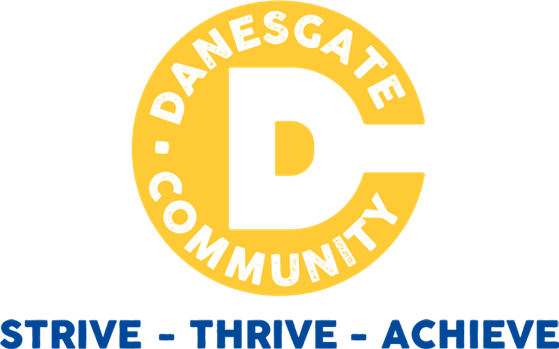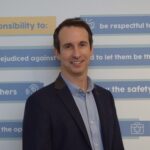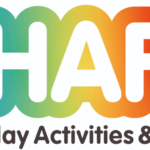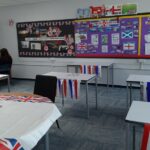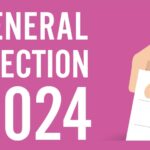Danesgate Community-Primary Curriculum Statement Intent
Danesgate Community caters for children who have a range of complex needs and who have struggled to access mainstream education in their previous settings. We firmly believe that developing an understanding of how each individual learns, engages, interacts and feels successful is essential to our everyday teaching.
As a school, we broadly follow the National Curriculum but teachers are given a level of autonomy to deliver it in a way that they feel will be effective for their individual pupils.
In the primary phase of our school, we offer each child the grounding in the core subjects that they will need going forward into KS3. We have an emphasis on fundamental maths, reading and writing skills to ensure that pupils have the ability and understanding to access the broader curriculum. We strive to then allow them to access the wider curriculum using a mixture of specialist staff, short, cross-curricular topics and child initiated learning which allows our planning and delivery to be dynamic and suitable to the individual child. We aim to make sure that every child feels that they are learning, achieving and developing each and every day.
Many children who join us in the primary phase have gaps in their learning from their time at mainstream school. Many of the key foundation areas are missing for these children and this can prove to be a barrier as they progress through primary school. Some of our pupils may be working at a significantly different level to their age-related expectations; therefore, input, delivery and independent work is all differentiated and tailored to suit each individual’s learning needs. This allows the child to feel a sense of ownership over their learning and to feel that they have a sense of control in their education journey.
Children take part in a number of sessions that are led by specialist staff, such as PE, Art, MFL and Cooking. These sessions give the children the opportunity to engage with a variety of staff in a different environment and can be used to allow them to develop more vocational skills. All children engage with lessons and activities that improve their understanding of their emotional literacy and regulation which we see an essential skill that all children need to be equipped with before they can can reach their potential as learners.
Groupings
We carefully group our pupils with consideration for their levels of communication, developmental stage and how we view their educational pathway to ensure that the social dynamics are positive and the expectations are coherent. We use the groups as a positive way to engage children in addressing and exploring their emotional and social needs. As the groups are small, the children are able to form strong relationships with staff and their peers which allows for an effective learning environment.
In our groups, there is a focus on social interaction, peer relationships and forming positive, long term relationships. The staff focus on these aspects of the holistic development of the child as much as the academic side. There is a clear, high expectation of what children will achieve during the day, in regards to their learning attitude, interaction with peers and staff and application to set tasks. Children will often cover a variety of key skills every day, returning to these building blocks (phonics, multiplication facts, mental maths etc) regularly to ensure that they are embedded.
Our groups in the primary phase consist of:
- Kestrel 1-KS1 learners who are with us on a dual placement alongside their mainstream school. The focus of this placement is to teach and embed strategies to allow the children to access mainstream education as positive learners. Staff work closely alongside the mainstream school and Outreach Support Workers to ensure there is a consistent approach.
- Kestrel 2– LKS2 learners who are with us on a dual placement alongside their mainstream school. The focus of this placement is to teach and embed strategies to allow the children to access mainstream education as positive learners. Staff work closely alongside the mainstream school and Outreach Support Workers to ensure there is a consistent
approach.
- Transition 6-UKS2 learners who are mostly with us on a dual placement alongside their mainstream school. The focus of this class is to prepare learners for their SATs at the end of Key Stage and prepare them for their transition to Danesgate for Key Stage 3, a full time mainstream secondary school or a part time placement in a mainstream secondary school.
- Talkabout 2-UKS2 learners who have a diagnosis of ASC and are at Danesgate on a full time placement.
- Primary Class 1 and 2 – A mixture of LKS2 and UKS2 children, the majority of whom have EHCPs. These are classes are
grouped according to need rather than chronological age.
Curriculum
We use the Cornerstones Maestro curriculum to map out our primary plan and to provide resources which allows for a great deal of personalisation and adjustments within each class to ensure that all children are succeeding and having their needs met. We intend to use this curriculum framework as a way to improve their understanding of the world around them, improve their self esteem and their confidence in their ability to learn. We aspire to challenge pupils at Danesgate and for them to leave us understanding that failure and mistakes are an integral part of the learning process. Our primary goal is to have our children leave Key Stage 2 as confident readers, writers, mathematicians, learners and, most importantly, members of a community.
The curriculum provides opportunities for all pupils to learn and to achieve, irrespective of social background, culture, race, gender, differences in ability and disabilities as defined as protected characteristics in the Equality Act 2010.
General Principles
- Our curriculum will give children the opportunity to:
- See clear links between different aspects of their learning
- Experience the challenge and the enjoyment of learning
- Develop interpersonal skills which are essential for classroom learning
- Develop new skills through a variety of interesting contexts
- Understand the purpose of their learning
- Develop, enhance and practice key, functional skill
Assessment and tracking
Assessment takes place in every area of our teaching practice. We use Cornerstones Maestro to track progress in both individual lessons and throughout the curriculum as a whole. Due to our pupils often having significant gaps in their knowledge, we see tracking our pupils’ progress as an integral part of the journey our pupils will go on and a very useful tool to inform our teaching.
Short term assessments
Verbal feedback from teachers and support staff is something that is frequently used within the classroom and during lessons. This allows pupils to access support and the staff to make adjustments to their activities and methods of teaching. At the end of each lesson, teachers mark down which objectives have been covered in that session using the Cornerstones Maestro database which allows teachers to see pupils’ progress on a granular level.
Medium term assessments
Children do half termly assessments in core subjects (SPaG, reading, arithmetic, reasoning) based on their current academic level as opposed to their chronological age, which allows us to show their progress from their baseline assessment when they joined us. Due to the nature of our pupils’ needs, we need to discover their level of ability through careful, discrete assessment initially. We also assess their understanding of their topic work through teacher assessment at the end of each topic.
Long term assessment
Long term assessment is achieved through end of year assessment and statutory end of Key Stage tests. These are sometimes administered in specialised ways to ensure that pupils feel safe and in an environment that they can achieve their full potential.
Tracking
Baseline assessments identify gaps and inform specific teaching. This allows teaching staff to set a Danesgate Agreed Target through teaching and learning, professional judgement, formal assessment and monitoring. The Danesgate Agreed Target is aspirational but also considerate of each pupil’s individual needs. There are termly assessment and monitoring opportunities, which allow the target to be dynamic and adjustable, depending on each individual child’s current situation.
English
At Danesgate, we aim for all children to become confident readers and writers. This begins with a phonics programme that can be used with a range of pupils over the primary phases. Specialist staff will alter and adapt phonics teaching to ensure its usefulness up to the age of 11. There are also alternative programmes, recommended by educational psychologists, if phonics is not proving to be the best way of teaching reading to older pupils.
All children are exposed to age-appropriate material, either through class reading or independent reading. Children are exposed to a variety of genres and texts through their topic work and comprehension and writing activities are woven throughout the curriculum. Written work that children produce is based around the topics they are covering which means that they have a greater depth of understanding and interest in what they writing. Children are taught to plan, edit and use high quality model texts to inform their own work.
We feel that children’s language and communication development is an essential part of education as it allows children to access the broader curriculum and express themselves in a meaningful and positive way. As children develop their language skills, they are able to explain and discuss issues with staff and peers. Therefore, we can link literacy skills to our pupils’ emotional wellbeing as well.
All classes follow a phonics/spelling, handwriting and reading programme which means that children spend part of each day practising these key skills or having 1:1 intervention sessions with teachers or support staff. As this is embedded in the day, children develop their strategies and are assessed weekly to ensure that pupils are making progress.
Numeracy
We endeavour to ensure that all children develop their understanding of the four operations while they are with us.
Using a variety of games, discrete assessment and personalised teaching, all pupils engage with daily activities based around addition, subtraction, multiplication and division. As a school, we understand that these building blocks are integral to accessing and understanding the curriculum as it becomes more challenging. We understand that without these instant recall facts, it can put most areas of the maths curriculum out of reach to our learners. Therefore, we target these areas regardless of the chronological age of the child, should they need it, to ensure that they have the foundations to reach their potential in the higher levels of maths.
As a school, we aim to improve our pupils’ understanding of maths through daily activities which allow the children to grow in independence each day and build on their previous knowledge and understanding. This is a supplement to our daily maths lessons which follow the White Rose Maths curriculum, allowing the use of high quality activities and resources. As all classes are small and have a high ratio of adults, it allows highly differentiated lessons to be taught and even smaller intervention groups or 1:1 tuition to take place alongside whole class learning. This allows those who struggle in a certain area the chance to make quick, consistent progress as staff can target the areas that have been
recognised as a barrier to them making progress.
Throughout their time in our primary classes, pupils are exposed to regular maths assessments, both formal and informal, to ensure that they are prepared and confident when the time comes for their end of Key Stage, statutory assessments.
PSHCE
Due to the complex needs of our children, we see PSHCE as an essential part of the curriculum which is woven throughout everything we do as a school. There is always an opportunity for pupils to improve the way the interact with each other, themselves and the world around them and both teaching staff and support staff at Danesgate will exploit this at every chance they are given. Alongside more formal sessions based around emotional literacy, wellbeing, self regulation, resilience, anger management, change and making friends, pupils spend parts of each day reflecting on their actions and interactions in the classroom, playtimes and at home. This type of teaching and learning is referred to as our ‘passive’ PSHCE, which is targeted to Danesgate pupils specifically to ensure we are meeting their social, emotional and mental health needs.
Children are given a mixture of structured and unstructured social time to allow them to develop and practice their social skills under the close supervision of teaching and support staff. This allows the staff to step in when they feel it is necessary but, where possible, allow the children to use their learned skills to resolve situations.
Each teacher will plan, develop and deliver their own lessons and activities depending on the need of their pupils but these will often be taught alongside a framework of lessons from the CYC Wellbeing team.
Alongside this, we use Curriculum Maestro topic sessions to teach our ‘active’ PSHCE. These are topic lessons that teach the PSHCE objectives as contextual to events in history or through creative writing.
Also, a Thrive practitioner who is attached to the Primary team at Danesgate works 1:1 with individual pupils to provide targeted strategies and activities to help them re-engage with life and learning.
Throughout the school, in both the primary and secondary phase, there is a focus on using the Zones of Regulation as a self-regulation teaching tool. All children in the primary phase have regular input regarding the Zones of Regulation to support them in their learning journey. We feel that it is essential for children to have a common language to share their feelings and to promote positive mental health. To support this, all classrooms have resources, displays and Zones in the classroom that children are encouraged to use.
Topics
Teachers pick half termly topics from Cornerstones Maestro, which provides high quality, cross curricular resources and assessment opportunities. Staff tailor these lessons for their pupils and ensure that they are covering the curriculum broadly when choosing the topics. Each topic has a driver subject, such as History or Geography, and this is used alongside companion projects which cover the broader curriculum and can be taught hand in hand with the main topic. In this way, children access as much of the curriculum as possible while also allowing their learning to be driven by interest and need.

We deliver a broad, balanced curriculum that starts at the beginning of the primary phase and extends through to the transition from Year 6 into Year 7. Pupils have a wide range of needs and ability and are grouped in accordance to their level of need and their pathway. In the earlier years, there is an emphasis on learning through exploration, identifying need before producing and maintaining the necessary paperwork to support their level of need. This is continued throughout their time in Danesgate as they potentially move through our various classes to ensure that they continue
to be challenged in order for them to be successful We aim to produce and deliver a specialised curriculum that builds confidence, self-esteem and understanding through structured, highly supported teaching which suits the needs of our pupils. As a school, we are caring and nurturing
and we strive to create an environment where all children feel listened to, safe and able to achieve their potential.
Impact
By the end of Key Stage 2 we expect children to be literate and numerate. They will have taken part in phonics screening, the Year 4 multiplication assessment and end of Key Stage tests, if applicable. All children will have developed their social communication and interaction. Children will have knowledge of key instant recall facts and will have had exposure to the wider curriculum through topics.
Children will be ready for the next step on their journey as independent learners who have a number of strategies that they use to support themselves in class and in unstructured social situations. Children will have a greater understanding of themselves as learners, they will recognise triggers and have strategies to manage dysregulation or challenges within school.
We hope that all learners will have developed the self-confidence to be able to take part in their end of year
assessments; KS1 SATs (Year 2), KS2 SATs (Year 6), phonics screening (Year 1/2) and multiplication assessments (Year 4). There is a focus on making small steps of progress throughout their time with us; informed by the Danesgate Agreed Target and monitored by the regular assessment points throughout the year. With this method of tracking, we are able to see where children have developed skills and knowledge that were missing when they joined us and where they have made larger leaps forward in their understanding of the curriculum. By the end of the primary phase, we will have an excellent understanding of the individual child and their specific needs. This allows us to make an informed decision about the correct setting for their transition into Year 7. This may be a placement at Danesgate in the KS3 groups, a full time placement at a mainstream secondary school or a part time
placement. Wherever they go, they will be leaving the Danesgate primary phase with a wealth of information about how best to support that child and a host of strategies to allow that child to be the best learner that they can be.
Danesgate Community-Secondary Curriculum Statement
Intent
Danesgate Community caters for children who have a range of complex needs and who have struggled to access mainstream education in their previous settings. We believe that “If a child can’t learn the way we teach, maybe we should teach the way they learn”. We therefore adapt the curriculum in order to
meet the individual needs of each pupil.
Our curriculum offers a stimulating learning experience that provides social and emotional support alongside an academic curriculum. We have high aspirations for our pupils and use our curriculum to respond to their evolving needs and remove their barriers to learning so that they are able to achieve and make progress. Throughout all subjects we focus on improving communication and social skills in addition to key skills required to become productive members of British Society. Danesgate Community also uses the curriculum to promote pupils’ health and wellbeing and to support pupils’ development of
emotional literacy in order that they better understand those around them.
We carefully structure our classes/groups considering pupils’ SEN diagnosis, communication skills, age and stage in development, as well as thinking about their social and emotional suitability to other peers. We ensure that class groups are balanced and promote a positive learning environment for all. Using
experiential learning is key to our curriculum offer. We aim to inspire aspirations for the future by offering a range of enrichment and vocational experiences, both onsite and offsite which develops pupils’ preparation for working life, including careers education and work experience. The nurture and care our staff provide to our learners develops the Danesgate community ethos; raising self-esteem, confidence in learning, expectations and therefore engagement in education.
Our implementation
This is achieved through bespoke, specialised timetables and the care and support of staff. This specialised curriculum gives pupils access to a range of academic, vocational and enrichment activities and enables them to become more confident and successful learners.
Lessons are delivered in small groups with a high staff to pupil ratio, so that pupils can feel safe within their learning and the lessons can be tailored to individual needs.
Key Stage 3 and 4 pupils are taught the curriculum by specialist subject teachers in the majority of case, with Keyworkers/tutors consistently supporting the
group and providing the nurture, care and consistency our leaners need. The academic curriculum at Danesgate Community is well complimented by the enrichment curriculum and supports pupils as they develop essential life skills and grow as an individual. We focus on helping our young people develop
their personal and social communication skills into a wider social context, both within the school and the wider world. Our nurture-based groups run on a primary model. This provision includes fewer transitions and working intensively with known members of staff is in place. This provision allows each pupil to work at a pace that works for them, allowing focussed therapeutic input and high levels of staff:pupil ratios Independent Careers advice and guidance is offered from Year 10 and 11, with bespoke and intense support for our students and their families so that they are well-informed about their future routes and choices.
Our Assessment and Tracking of Progress
In addition to formative assessments through initial SEN and baseline testing (Via GL assessments), further teacher assessments take place each term with reporting to parents. Assessment will take place at three connected levels: short term, medium term, and long term. These assessments will be used to
inform teaching in a cycle of planning, teaching and assessment.
- Short term assessments will be an informal part of every lesson to check pupils’ understanding and gain information which assists in adjusting day to day lessons plans. This informs the planning and next steps of learning. Teachers and support staff provide individual instant verbal feedback each lesson and pupils make adjustments to their work following this feedback.
- Medium term assessments will assess some of the ideas linked to the assessment objectives which have been covered during a half term. Pupils’ individual targets will be assessed and reviewed regularly.
- Long term assessments include a variety of assessment tests which may be used according to students’ ability levels. Assessment will also be made through end of Key Stage tests or tasks and also using external examinations.
Baseline assessments identify gaps and inform specific teaching, this allows a Projected Grade to be generated. Teaching staff also set a Danesgate Agreed Target through teaching and learning, professional judgement, formal assessment and monitoring and FFT data. The Danesgate Agreed Target is aspirational but also considerate of each pupil’s individual needs. There are termly assessment and monitoring opportunities, which allow the target to be dynamic and adjustable, depending on each individual child’s current situation.
PSHE
At Danesgate Community we aim to promote healthy, independent and responsible members of society. We encourage all our pupils to play a positive role in contributing to school life and the wider community through class & school councils, fundraising events, supporting nominated charities and involvement in community activities. Our pupils are given opportunities in throughout their day to day life at Danesgate to develop confidence, self-motivation and an understanding of their rights and responsibilities. We teach PSHE in a variety of ways: as an active subject via our new initiative with the Prince’s Trust, our planned PSE qualification but also passive through other subjects such as Literacy, Maths and Science, as well as through outdoor educational visits, staff interactions, community work and activities.
Our Impact
The curriculum at Danesgate Community, will impact in a number of ways for the pupils:
- All pupils will be prepared for the next stage of their lives
At KS2, pupils are numerate and literate. Socially and academically they are prepared to independently access the next stage of their learning with continued support in phonics. We hope that all learners will have developed the self-confidence to be able to take part in their end of year assessments;
KS1 SATs (Year 2), KS2 SATs (Year 6), phonics screening (Year 1/2) and multiplication assessments (Year 4).
At KS3 pupils are prepared to follow an academic, vocational or blended pathway into KS4. They are well informed about the choices they need to make for future success.
At KS4, pupils are prepared both academically and socially for the next stage of their education with the knowledge, understanding, skills and attitudes necessary to enable them to play a full part as responsible citizens in the 2lst Century.
The impact of the curriculum will enable our pupils to achieve a range of appropriate qualifications that prepare them to move on to the next stage of education, allowing them to demonstrate significant and sustained progress in:
- Communication skills.
- Literacy skills.
- Numeracy skills.
- Levels of independence.
- Life skills required to function more appropriately in the community.
- Relevant experiences to assist their decisions about future careers.
- Relevant and transferable qualifications for future education employment and training
- Having a positive attitude towards their present and future learning.
- Having sufficient key skills and self–esteem to approach new situations confidently with resilience.
